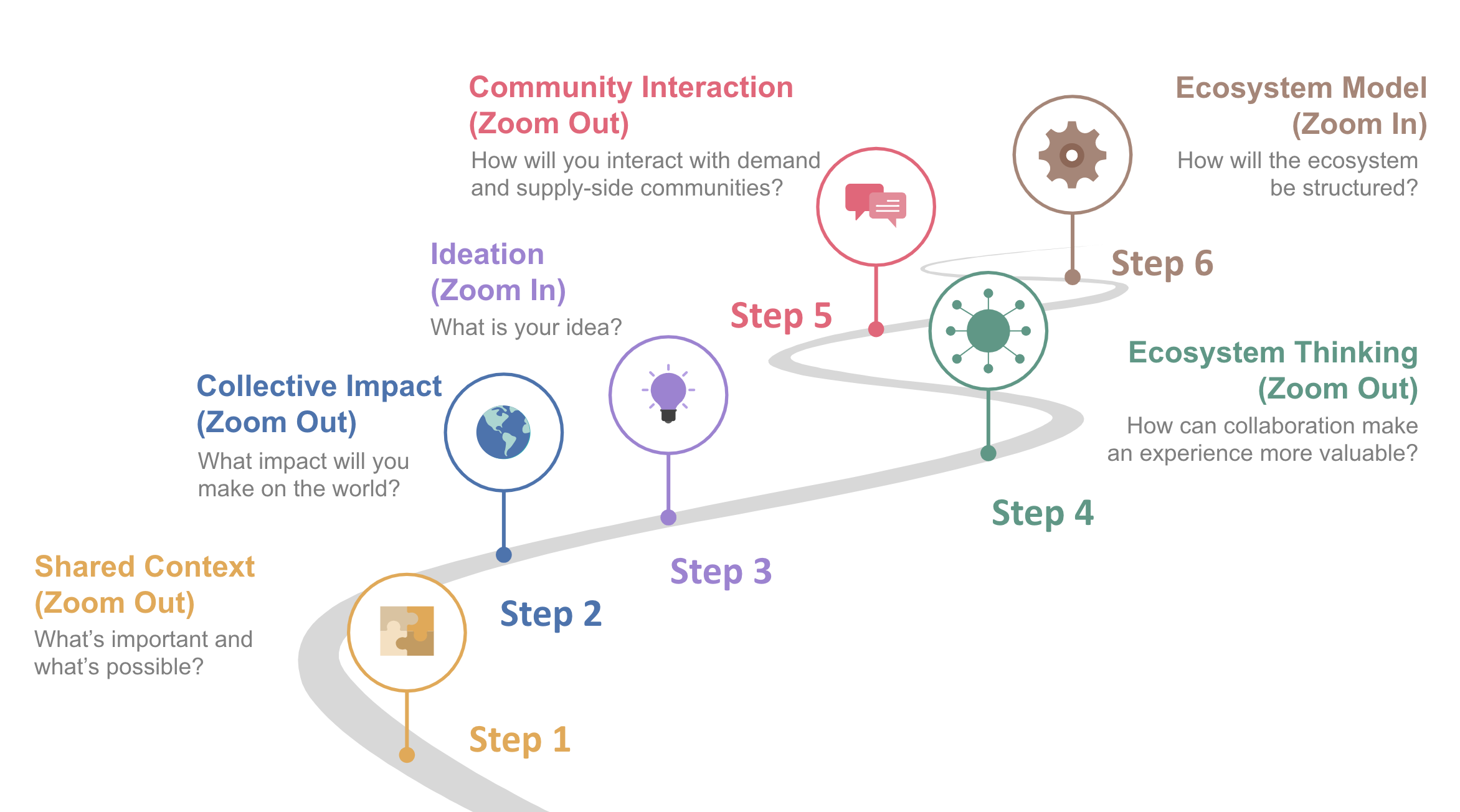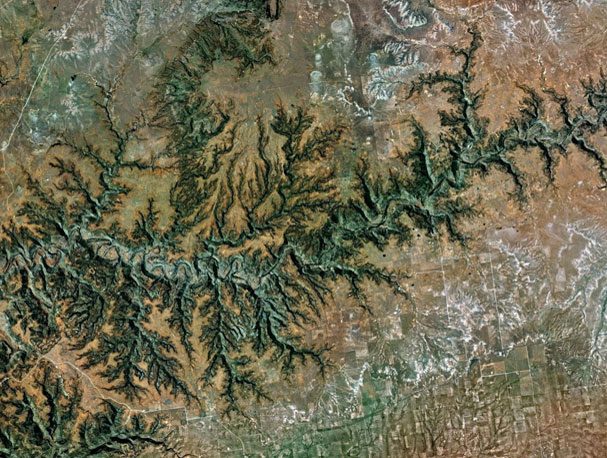

Platforms Models Are Lucrative, But Risky
Seven of the world’s ten most valuable companies are platform companies.
Despite this, most platform initiatives fail.1
- 209 of 252 initiatives or 83% failed in the last 20 years
- Avg. lifespan was 4.9 years
Why Most Platform Ecosystems Fail2
- Wrong governance choices (34%)
- Unable to mobilize/align participants (18%)
- Lack of compelling problem to solve (10%)
- Weak Defensibility (10%)
- Unable to achieve critical mass (8%)
- Poor incentives/value sharing (5%)
Ecosystem Intentions Underpin Success
A surprising number of platform ecosystems fail from misaligned ecosystem intentions.
- Who owns it?
- Who can access it?
- Who can monetize it?
- Intellectual property sharing?
- Data sharing?
Aligning early on the aspects of ecosystem intent is the key to success.

The Ecosystem Intent Toolkit
Explore ecosystem intent, zooming in and out around six areas
that complement platform strategy and influence ecosystem success.
Think Beyond The Platform
Explore key design questions:
- Zoom out to what’s important and possible
- Zoom out to your broadest impact
- Zoom in to your platform ecosystem idea
- Zoom out to make your idea more valuable
- Zoom out to community engagement
- Zoom in to ecosystem structure
View Walkthroughs
& Working Sessions
Watch videos for deeper insights and a behind the scenes look at the inner workings of the tool as it evolves.
- Overviews
- Walkthroughs
- Prototyping
- Working Sessions
Videos
00:00
-1:12:51
Read About
The Ecosystem Intent Toolkit
Follow our writings on the EIT as we’ve conceptualized and developed it. The tool was inspired by the Platform Design Toolkit and is loosely based on Spiral Dynamics, a framework for navigating the mindsets that influence ecosystem success.
Articles Related To The Toolkit
Open the Toolkit in Miro,
a collaborative online whiteboard platform
designed for remote and distributed teams.
The Ecosystem Intent Toolkit is Licensed under the Creative Commons Attribution-Share Alike 4.0 International License. It was inspired by and meant to complement other open source ecosystem and platform design tools like Platform Design Toolkit.













